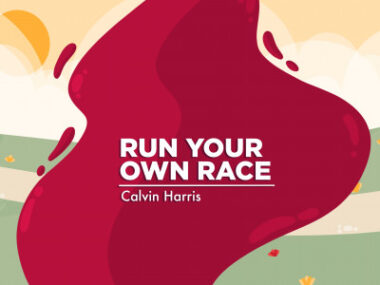Drama series reflects the best, worst of online patient communities
Netflix's 'Apple Cider Vinegar' highlights dangers of trusting the wrong sources
Written by |

“This is a true story based on a lie.”
That’s how each episode of “Apple Cider Vinegar,” a Netflix series released earlier this year, begins. The show tells the story of Belle Gibson, an Australian wellness influencer, app developer, and cookbook author. Through sharing her story about her brain cancer diagnosis, she finds, connects with, and offers comfort to other patients around the world.
Naturally, this idea drew me in. After all, that’s what I aim to do here and through my books and other advocacy efforts. And it’s what continues to inspire me every day.
During the years that I struggled to get a diagnosis, when dismissive doctors and others around me simply said I didn’t look sick, I felt like I was losing my mind. Between the pain, fatigue, dizziness, and other symptoms I was suffering with every day, I knew something was wrong — but nobody believed me. Even when I was finally diagnosed with sarcoidosis, it was still something most people didn’t understand, so they couldn’t, or wouldn’t, sympathize.
Finding the chronic illness community online was a godsend. Here, there are people fighting the same battle. They’ve been dismissed by people who didn’t believe them. They’ve gone from doctor to doctor. They’ve done tests that came back negative and tried medications that didn’t help. They’ve had problems at work or with family or people they once considered friends because, without a diagnosis, they “must have been faking.”
It’s been said that misery loves company, but that’s not what this was. These people — my people — reassured me. Even without a diagnosis, they validated my experience. They believed me, because they knew what it felt like to not be believed. And they gave me hope, because some of them eventually got accurate diagnoses, treatments that helped, and a more supportive environment.
As we share our experiences, we get more than just validation (though that, in itself, is pivotal). We gain friendships, we become empowered, and we get ideas. We teach each other about shortcuts, tricks, and gadgets that make day-to-day tasks easier. We help each other figure out how best to explain our conditions and limitations to the people in our lives. We learn about each other’s symptoms, treatments, and comorbidities that we may want to discuss with our own doctors.
But this is where we’ve got to be careful.
The dangers of trusting the wrong people
As we see in “Apple Cider Vinegar,” Gibson never actually had cancer, never healed herself with natural foods as she claimed on her website, app, and cookbook, and never donated the money she collected on behalf of other patients and organizations. But hundreds of thousands of followers believed her. They believed in her and wanted to be like her. So they followed her methods and purchased her products, often forgoing professional medical advice and proven therapies.
It’s easy to understand why claims like Gibson’s are so appealing. They offer all the benefits (better health, beauty, inner peace) and promise to remove all the drawbacks (symptoms, stress, side effects). Who wouldn’t want that?
Even before social media became what it is today, there was a time when I was ready to forsake traditional Western medicine, too. I’d spent most of 2008 and 2009 running from one doctor to another, one test to another, begging for anyone to give me an answer, but no one did. I felt like doctors had given up on me, so I turned the tables and gave up on them.
I decided I was done and went in another direction. I tried acupuncture, hot yoga, and Chinese herbal medicine. I went to a “total health” center that offered chiropractic adjustments, physical and massage therapy, and a strict nutrition program. And it all helped, some … until it didn’t, and things got worse.
What seems to work best for me is a combination: traditional Western medicine (now that I have an accurate diagnosis), which includes intravenous immunoglobulin infusions, azathioprine, hydroxychloroquine, and other prescription medications, as well as an assortment of complementary therapies and lifestyle changes.
But that’s just me. I can only speak to my own experience. The only “medical advice” I can offer is to do your own research from reliable sources, speak with your own doctors, and decide what feels right for you.
“Apple Cider Vinegar” highlights the dangers of putting our trust in the wrong place. Driven by a need to be admired, a mental health condition (Munchausen syndrome is suggested in the series), or simple greed, people like Gibson prey on our desperation, offering false hope for a price and casting a shadow of doubt over the rest of us.
Note: Sarcoidosis News is strictly a news and information website about the disease. It does not provide medical advice, diagnosis, or treatment. This content is not intended to be a substitute for professional medical advice, diagnosis, or treatment. Always seek the advice of your physician or other qualified health provider with any questions you may have regarding a medical condition. Never disregard professional medical advice or delay in seeking it because of something you have read on this website. The opinions expressed in this column are not those of Sarcoidosis News or its parent company, Bionews, and are intended to spark discussion about issues pertaining to sarcoidosis.






Joan Anderson
OMG! I can definitely relate. My symptoms started in 2010, but I wasn't diagnosed until 2018 when they discovered it during gallbladder surgery. I saw sooo many drs in the mean time. I can't count all the tests I had and how many times my husband was told that I was faking it. None of the many, many tests showed any sign of Sarcoidosis. Thank God for my gallbladder.
🦋 Kerry Wong
Wow, Joan! Yes, thank goodness for the gallbladder surgery! I'm so glad you finally got that confirmation and validation. hope with the accurate diagnosis, you're able to manage your symptoms better, too.
~🦋
Carolyn Hodo
Thanks Mrs. Wong. Once again you nailed it! Your article validated, unfortunately, some of the hurdles many with a rate disease have to go through. I feel comfort knowing I am not alone and that there is hope for a better future even though the struggle.
🦋 Kerry Wong
You are definitely not alone, Carolyn. We're in this together!
~🦋
Alice Curey
Your articles always hit home with me and I usually read them several times. Having lived with his condition for many years before being diagnosed I tried alternative remedies. So for me, it was a big relief when I was finally diagnosed after having surgery on my lungs. Because now I can be treated from a scientific point of view. Of course, being undiagnosed for so many years caused plenty of damage to my body. I can still breathe reasonably well, but I am 71 and can barely walk because of the arthritis. I live in a rural area and access to specialists is not easy. My doctor is currently trying to get me an appointment at the Duke University sarcoidosis and rheumatology clinic. I think it is important for anyone who gets a diagnosis of sarcoidosis to go to one of the Sarcoidosis clinic at one of the major medical facilities, before their problems get worse. Apple Cider Vinegar is a fascinating series that shows just how much misinformation we are inundated with. Your articles are always informative and so inspiring. Thank you for sharing your gift of writing with us!
🦋 Kerry Wong
Thank you so much for your kind words, and for sharing your story, Alice. I agree, the sarcoidosis clinics can add an extra level of comprehensive understanding (I went to Cleveland Clinic), and recommend checking https://www.wasog.org/about/wasog-sarcoidosis-clinics.html for anyone struggling for better answers. Wishing you the best of luck at the Duke clinic!
https://www.wasog.org/about/wasog-sarcoidosis-clinics.html
https://www.wasog.org/about/wasog-sarcoidosis-clinics.html